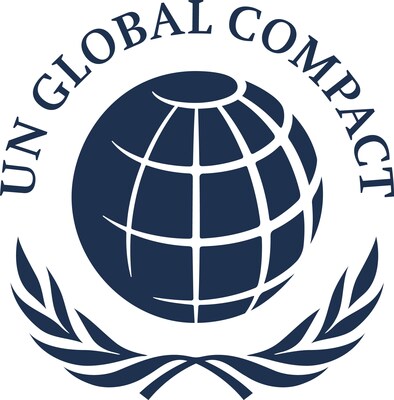NEW YORK, Sept. 22, 2025 /PRNewswire/ -- Gathering 50 global CEOs and representatives with a combined market capitalization above $2 trillion, alongside government and UN leaders, the UN Global Compact Private Sector Forum (PSF) today set out a practical path to accelerate private investment in sustainable, inclusive growth - spotlighting productivity-led transitions, bankable projects and stronger public-private coordination to close the SDG financing gap. The closed door high-level roundtable, held at the UN Headquarters, underscored that collaboration between business and the multilateral system is indispensable amid climate disruption, technological transformation and geopolitical headwinds.

Opening the Forum, the UN Secretary-General, António Guterres, warned that momentum on the 2030 Agenda is weakening and demanded a step-change in both funding and follow-through. He said development's engine is misfiring - pointing to a yearly SDG shortfall of over $4 trillion - and called on leaders to turn the tide by moving capital to priority areas.
Participants focused on the UN Global Compact Sustainable Finance Roadmap as a practical framework to channel private capital at scale into six real-economy transitions - food systems, energy, digital access, education, jobs and climate & biodiversity - prioritizing pipelines in low- and middle-income countries where investment can unlock productivity and growth. The discussion emphasized the need for bold, bankable investments in digital public infrastructure, energy access, and climate adaptation and for tighter alignment between private-sector innovation and enabling public policy.
Leaders also confronted the economic case for urgency. Continuing with business as usual could cost five times more than investing to keep warming to 1.5°C, with climate impacts already adding roughly $500 billion in annual damages. By contrast, sustainable solutions across food, water, health and climate could unlock $10 trillion in opportunities and create nearly 400 million jobs by 2030. With more than $200 trillion in private assets worldwide, the capital exists - what's needed is policy clarity, credible pipelines and partnerships that can crowd investment into priority regions at speed.
This year's PSF coincides with two milestones: the UN's 80th anniversary and the 25th anniversary of the UN Global Compact, the world's largest corporate sustainability initiative with a global network of companies committed to responsible business. Despite headwinds, CEO sentiment toward sustainability remains strong: 88% of chief executives report the business case is stronger today than five years ago, even as they call for more predictable, rules-based markets and coherent standards to scale action.
Business Organizations Reaffirm Support for Inclusive Multilateralism
As part of today's outcomes, leading business organizations - the International Chamber of Commerce, the International Organisation of Employers, the UN Global Compact, and the World Business Council for Sustainable Development - released a statement reaffirming support for an inclusive, effective multilateral system and welcomed the Pact for the Future's call to deepen private-sector engagement. Participants underscored that delivery now depends on trust among governments, the UN and business - and on tangible results at the country level working with UN Resident Coordinators to align investment with national priorities, promote decent work, and grow sustainable enterprises.
The Secretary-General challenged leaders to focus on three immediate questions: how to unlock capital where scale and impact are greatest; how to catalyze infrastructure investment in priority regions; and how business can accelerate digitalization, energy access and decent jobs with greater credibility and purpose. "We have more than enough capital globally to fund a just transition… but we need greater political will, and bold, accountable leadership from Governments and business," he said.
Next steps emerging from the Forum included advancing the Sustainable Finance Roadmap with partners; building standardized, investment-ready pipelines around the six transitions; and engaging regulators and market standard-setters to reduce friction and crowd in institutional capital - all feeding into the Pact for the Future implementation track and forthcoming milestones this year, from COP30 to the World Social Summit.
Notes to Editors
About the UN Global Compact
The ambition of the UN Global Compact is to accelerate and scale the global collective impact of business by upholding the Ten Principles and delivering the SDGs through accountable companies and ecosystems that enable change. With more than 20,000 participating companies, 5 Regional Hubs, 64 Country Networks covering 85 countries and 9 Country Managers establishing Networks in 16 other countries, the UN Global Compact is the world's largest corporate sustainability initiative - one Global Compact uniting business for a better world. For more information, follow @globalcompact on social media and visit our website at unglobalcompact.org.
Logo - https://mma.prnewswire.com/media/2597908/UNGC_Logo.jpg
![]() View original content:https://www.prnewswire.co.uk/news-releases/un-global-compact-private-sector-forum-rallies-ceos-and-governments-to-mobilize-capital-for-sdgs-as-un-marks-80-years-302563363.html
View original content:https://www.prnewswire.co.uk/news-releases/un-global-compact-private-sector-forum-rallies-ceos-and-governments-to-mobilize-capital-for-sdgs-as-un-marks-80-years-302563363.html

